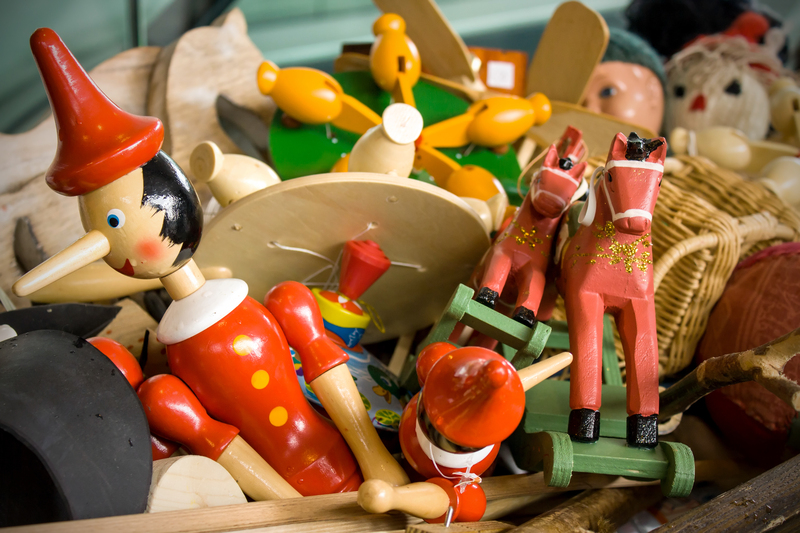Interactive Methods for Explaining Recycling to Children
Recycling forms a vital part of environmental conservation and sustainability. Teaching children about recycling lays the foundation for eco-friendly habits that benefit the planet for generations. But how can we make recycling education engaging and meaningful for young minds? Interactive methods have proven to be the most effective way to explain complex environmental concepts to children in fun, memorable ways.

Why Interactive Learning Matters in Environmental Education
Children, especially in their early years, learn best by doing and experiencing rather than just listening. Hands-on activities, storytelling, games, and digital resources can make the ideas behind recycling practical and relatable. Recycling lessons become more than just facts--they transform into skills and values children adopt for life.
The Benefits of Explaining Recycling in an Interactive Manner
- Boosts Engagement: Children are naturally curious. Interactive methods keep their attention longer and make learning enjoyable.
- Encourages Positive Attitudes: Kids who are involved in activities are more likely to develop a positive outlook toward sustainable habits.
- Builds Lasting Habits: Practical recycling activities create routines and skills that stick.
- Improves Understanding: Tactile experiences make abstract concepts concrete and easy to grasp.
1. Storytelling and Recycling-Themed Books
Stories have incredible power to shape children's perceptions and behavior. Utilizing books and storytelling sessions centered around recycling can introduce key terms like waste sorting, reuse, composting, and upcycling in age-appropriate language. Choose books with relatable characters facing real-world challenges regarding rubbish and pollution.
Tips for Storytelling
- Choose stories that feature children or animals who learn to recycle and inspire positive change.
- Pause during reading to ask questions and let children share their experiences with waste.
- Role-play scenes from the story to help children embody recycling heroes.
2. Recycling Sorting Games
A hands-on way to explain the process of recycling is through sorting games. These games can be set up at home, in the classroom, or even outdoors. Use clean, empty containers--such as bottles, cans, paper, and plastic packaging. Ask children to sort items into labeled bins: recyclable, compostable, reusable, and landfill waste.
How to Make Sorting Games Exciting
- Turn sorting into a race--who can place items in the correct bins fastest?
- Create a themed relay (e.g., "Recycling Olympics") with teams.
- Use colorful bins and illustrated labels for younger learners.
3. Creative Arts and Recycling Crafts
Arts and crafts provide a tangible method to illustrate the concept of reuse. Challenge children to turn recyclables into art: old bottles become planters, boxes become robots, cans turn into musical instruments. Such creative upcycling activities highlight the value of materials that might otherwise be thrown away.
Examples of Craft Projects
- Recycled paper collages--use old magazines and newspapers for art.
- Egg carton creatures--paint and assemble imaginative animals from cartons.
- Plastic bottle planters--cut bottles, decorate, and plant seeds.
- Shoe box dioramas--turn boxes into miniature worlds or habitats.
4. Educational Recycling Videos and Interactive Apps
Digital technology can make recycling education highly interactive, especially for today's tech-savvy children. Numerous online videos, animation series, and educational apps are specifically designed to explain recycling for kids. Search for interactive games that simulate waste sorting and quizzes about what can or cannot be recycled.
Recommended Resources
- Sesame Street recycling episodes
- National Geographic Kids environmental games and videos
- Recycle Roundup by National Geographic: a popular online game
- Eco-friendly apps like "Garbage Dream" or "Gro Memo"
5. Community Clean-Up Events
Nothing beats learning by doing. Organizing community clean-up days helps children see firsthand how waste affects their environment. Arm kids with gloves, bags, and instructions on segregating waste as they clean parks or beaches. This real-world approach shows the direct impact of pollution and the power of collective recycling efforts.
Organizing Tips
- Ensure adult supervision and safety precautions.
- Celebrate effort--give certificates or eco-badges for participation.
- Follow up with a group discussion or art project about their experience.
6. Recycling-Themed Board Games and Tabletop Simulations
Board games create structured yet fun opportunities to reinforce recycling knowledge. Many games have been developed to simulate city waste management, personal recycling responsibility, or composting processes. These add an element of friendly competition that motivates children to remember what they've learned.
Examples
- Recycle Rally - players race to sort the most recyclables.
- Compost Heroes - teaches composting and organic waste breakdown.
- Make your own bingo or memory card games using recyclable item pictures.
7. School Recycling Projects and Classroom Initiatives
Bringing interactive recycling methods into the classroom has a ripple effect--children often take ideas home to their families. Set up school-wide recycling challenges or recycling clubs where students track progress, analyze results, and present findings. Incorporate recycling education in science, art, and social studies lessons for a cross-curricular approach.
Ideas for School Initiatives
- Assign "Recycling Monitors" to oversee bin usage and cleanliness.
- Host a plastic-free week or zero waste lunch days.
- Create recycling awareness posters and display them around school.
- Encourage pen pal projects with schools in other cities or countries to compare recycling practices.
8. Science Experiments on Recycling and Decomposition
Children love experiments! Simple, supervised science projects can explain how materials break down (or don't) over time. Set up composting jars to compare rates of decomposition for an apple core, paper, plastic, and tin foil. This visual evidence leaves a lasting impression about what is biodegradable and why recycling is crucial.
Safe Experiment Ideas
- Track plastic bottle decomposition vs. paper in soil over several weeks.
- Test which items float or sink to demonstrate differences in recyclables.
- Create a small worm composter to watch food scraps turn into soil.
9. Recycling Songs, Rhymes, and Role-Play
Music and movement are fantastic methods to engage young kids. Write recycling-themed songs or use well-known tunes with new lyrics about sorting waste. Use rhymes and chants during classroom transitions. Role-play scenarios (like visiting a recycling center or being a "Recycling Detective") help children explore different perspectives.
Song and Role-Play Ideas
- Try "Reduce, Reuse, Recycle" song challenges.
- Invent a "Recycling Superhero" persona for students to act out responsible behaviors.
10. Recycling Field Trips and Facility Tours
If possible, organize a field trip to a local recycling center, landfill, or composting facility. Seeing industrial recycling machinery and meeting workers in real life can make a significant impact. Preparation is key: discuss what children will see and encourage questions during the visit.
What to Prepare for a Field Trip
- Brief the group on safety and respectful behavior.
- Prepare observation worksheets for children to fill during the visit.
- Debrief after the trip to share learnings and highlight new ideas for recycling at home and school.
Making Recycling a Habit: Reinforcement at Home and School
The key to successful recycling education is ongoing reinforcement. Set up visible, accessible recycling bins at home, and label them clearly. Reward positive behaviors with praise, stickers, or "green points." Share progress with your child, such as how much waste has been reduced over a month. Consistent routines turn recycling from a chore into a lifelong value.
Family and Community Reinforcement
- Begin a family challenge to see who can cut down the most on single-use plastics.
- Visit local recycling collection points together regularly.
- Volunteer for neighborhood eco-projects as a family to model stewardship.
Frequently Asked Questions About Teaching Kids Recycling
At what age can children start learning about recycling?
Children can begin to understand simple recycling concepts as young as two or three years old. Use age-appropriate language and activities; toddlers can sort blocks by color as a precursor to sort recyclables later.
How do you keep recycling fun for kids?
Keep activities varied--arts, games, music, and movement all help. Let children make choices and take on responsibility. Celebrate every small success!
What if my child is uninterested in recycling?
Find a personal angle--link recycling to their favorite activities or interests (such as animals, superheroes, or art). Invite friends to join in group activities for added fun and motivation.

Conclusion: Building a Greener Future, One Child at a Time
By making recycling education interactive, we empower children with eco-friendly habits and important life skills. Whether through games, arts and crafts, digital tools, or real-life experiences, every activity helps nurture environmental responsibility. Interactive methods for explaining recycling to children ensure these young learners become tomorrow's environmental stewards--protecting the Earth for generations to come.
Additional Resources
- US Environmental Protection Agency: Reduce, Reuse, Recycle
- National Geographic Kids: All About Recycling
- Recycle Now: How to Recycle at Home
Start the Conversation Today!
With the right interactive strategies, explaining recycling to children can be creative, empowering, and fun. Start your journey to a greener future by bringing some of these approaches into your home, school, or community today.